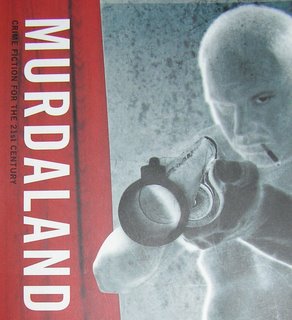
I hadn’t read the poem “My Brother Killing My Brother” in years—2004 to be exact. The Detroit poet said he had no idea it would apply to U.S. soldiers. I guess timing is everything when it comes to publishing.
I brought the poem inside a correctional facility, its true meaning hidden within the pages of a now defunct literary journal, a meaning soon to be stretched within the confines of three concertina-wired fences and neighboring gun towers.
“I know this poet’s brother!” the classroom tutor says, chuckles. He parks his wheelchair near my desk.
I have a confession to make: I’m not passionate enough about poetry, unless, of course, it’s confessional poets validating their words through extreme measures. Still, I listen.
The tutor tells me how the poet’s brother pummeled a man with a baseball bat, how the poet’s brother didn’t know his victim, how the cops discovered the poet’s brother sleeping in a field not too far from the car he’d left idling on the shoulder of the road, how that car idled until it ran out of gas. “James,” the tutor remarks, “blacked out. The cops woke him up. He hadn’t a clue about what he’d done.” More laughter.
Of course I have no way of substantiating any of this; I have the words of a prisoner confined to a wheelchair.
I study the words, I stop at the subtitle: (in a series of poems denouncing violence). I read about images of exposed brain: tofu in Merlot sauce, feta cheese & beet juice on a salad of sticky hair, white chips of shattered skull…
I’m mesmerized by the words, by the totality of it all. And I’m a bit shocked as well. I feel like a detective assessing the crime scene. Who is this Detroit poet in question? I read parts of the byline: Joseph Ferrari, business owner of Leadfoot Press. If I wanted to know more, I’d contact the poet. I’d start by asking, “Do you have a brother?” Not that I need to—the poem has done its job, the poem is that good.








